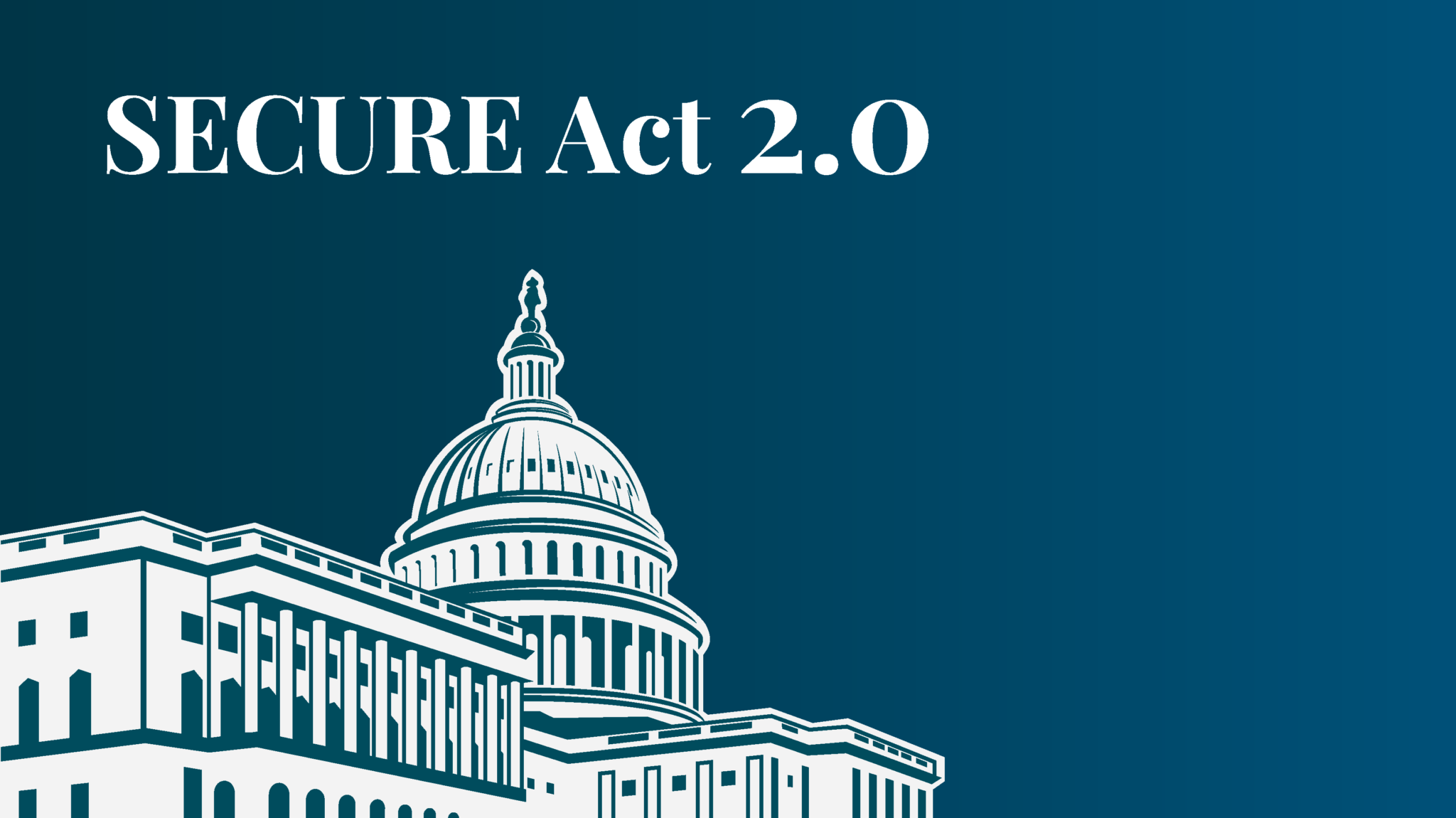The SECURE Act 2.0 was recently passed into law and, if you’re saving for retirement, it makes some notable changes, whether retirement is just around the corner or still decades down the road. These include:
- Increasing the required minimum distribution (RMD) age to 73 in 2023 and to 75 in 2033.
- Penalties for a missed RMD drop to 25% and just 10% if corrected quickly.
- RMDs are no longer required for Roth 401(k) accounts in 2024.
- Allowing higher catch-up contributions for savers aged 60-63 starting in 2025.
- Requiring catch-up contributions to be saved into Roth accounts for high income savers.
- Company matching contributions may be directed into Roth accounts.
- 529 balances can be rolled into a Roth IRA for the beneficiary, subject to limits.
What does this mean for you? Here’s what you should know about each of these changes.
Required Minimum Distribution age increases
Starting January 1, 2023, the required minimum distribution (RMD) age increases to 73. Once you reach age 73, you’re required to make annual distributions from pre-tax IRAs, 401(k)s, and other qualified retirement plans. And, starting January 1, 2033, the age increases again to age 75 for individuals who turn 74 after December 31, 2032.
The penalty for failing to take RMDs has been reduced to 25% of the required amount, down from the current 50%. If you miss your RMD deadline but correct it quickly, your penalty drops further to 10%. While the IRS doesn’t apply the penalty very often, retirees can breathe a little easier in case they did owe the fee.
Roth 401(k)s no longer require RMDs
Starting in 2024, Roth accounts in 401(k) or other employer-sponsored plans will no longer require you to make required minimum distributions during your life. This has long been the case for Roth IRAs but Roth 401(k)s were subject to RMDs until this change.
Higher catch-up contribution if you’re age 60
Starting in 2025, you can make an additional catch-up contribution to your retirement plan between the ages of 60 and 63. The additional contribution is the greater of $10,000 or 150% of the regular catch-up amount. For example, the 2023 catch-up amount is $7,500, so 150% would be $11,250.
For SIMPLE IRA plans, the catch-up amount is the greater of $5,000 or 150% of the regular catch-up amount, currently set at $3,000.
Catch-up contributions must be Roth for high earners
Starting in 2024, your catch-up contributions must be made as Roth contributions if you earn more than $145,000, adjusted for cost-of-living.
Company match can be saved as Roth
Your company retirement plan can allow you to designate matching or nonelective company contributions as Roth, if fully vested. This does require you or your company to amend the existing plan, so expect this to take some time to be implemented.
Penalty-free distributions for Long-Term Care insurance
Starting on December 29, 2025, your company retirement plan can permit penalty-free distributions to pay for long-term care insurance, limited to the lesser of the cost of the insurance, 10% of the vested account balance, or $2,500 annually, adjusted for cost-of-living.
Some unused 529 balances can be rolled to a Roth for the beneficiary
Starting in 2024, some of your unused 529 funds can be rolled over into a Roth IRA for your beneficiary. To be eligible, funds must have been in the 529 account for 15 years. Rollovers count toward the annual Roth contribution limit and have a $35,000 lifetime limit per beneficiary. For a more on this, read 529s & SECURE Act 2.0.
We can help make sense of the changes!
Have a question? As with all changes big or small, each situation is different and we’re here to help you understand how they affect your plan and strategies!
The “Alterra” name was coined by joining the Latin roots “alter”, the origin of the word “altruism” with “terra” meaning earth or land. This name reflects the company philosophy of “clients before profits” and providing firmly grounded advice.


